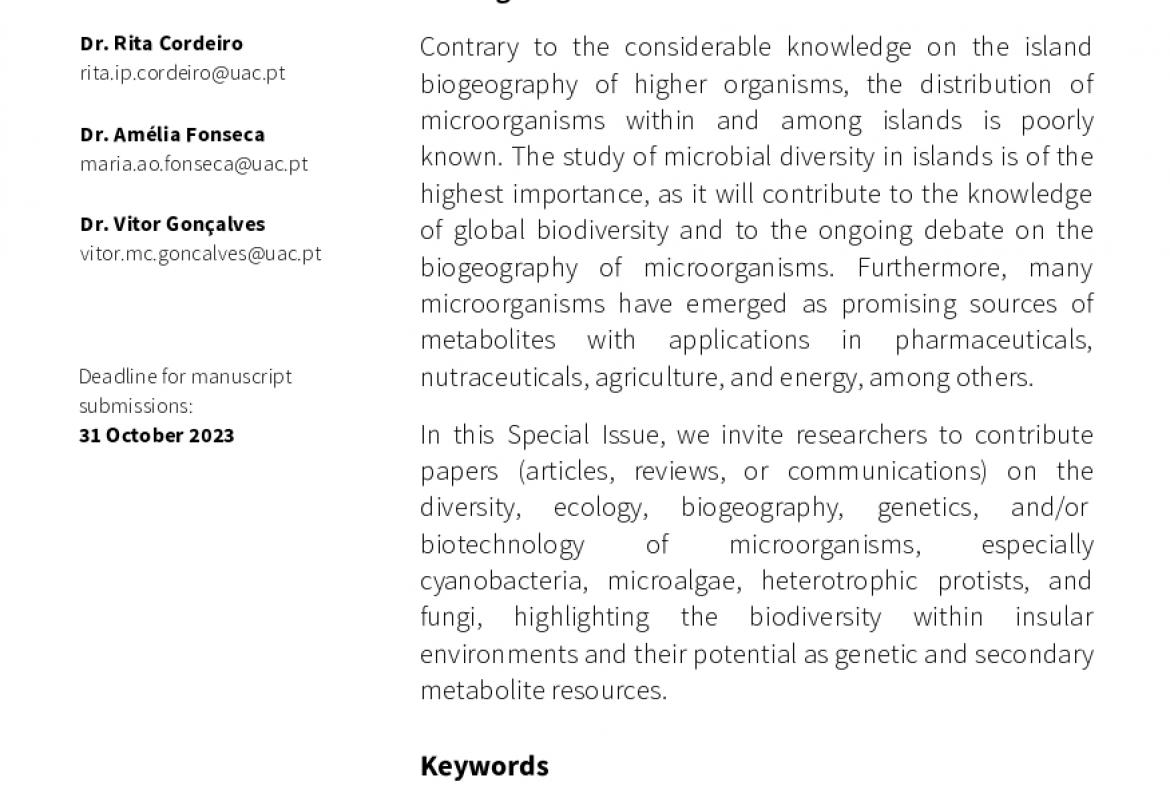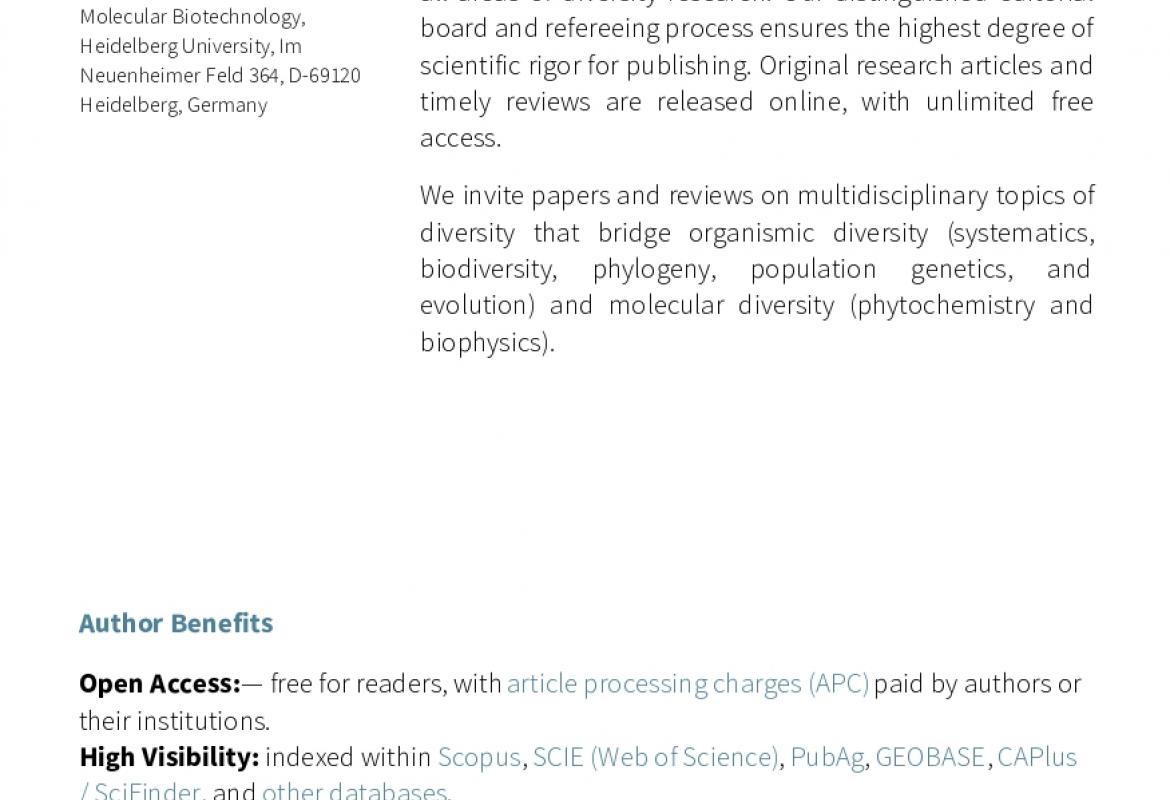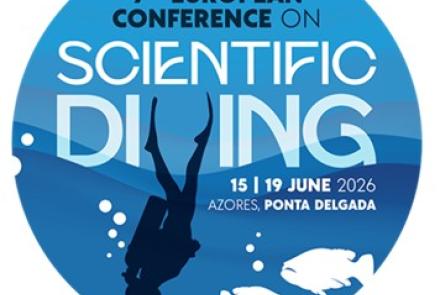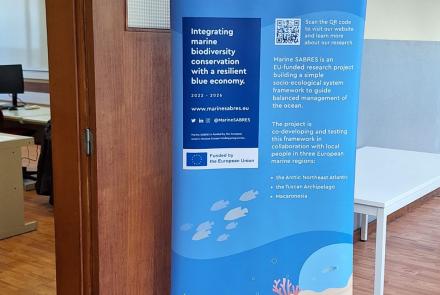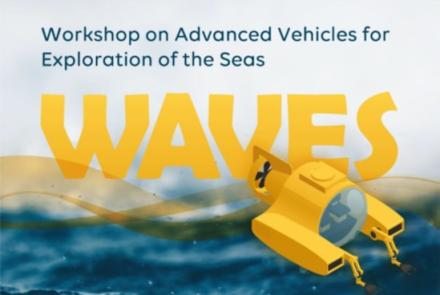Special Issue "Microbial Diversity on Islands: Cosmopolitanism and Endemism"
Biodiversity on islands, especially on remote oceanic islands, is affected by several environmental constraints that modulate the composition of local communities and ecosystem functioning. As a result of such processes, islands generally have reduced species richness but high levels of endemism that contribute greatly to global biodiversity. Although this is well recognised for plants and animals, the distribution of microorganisms has long been considered not influenced by geographical effects and that “everything is everywhere but the environment selects”. However, recent findings suggest that previously neglected processes such as isolation and dispersal limitation have an important role in the distribution of a wide range of microorganisms, including protists and cyanobacteria. Thus, the hypothesis of moderate endemicity was suggested as an alternative to the everything is everywhere hypothesis.
The introduction of novel approaches to access biodiversity, such as advanced morphometric and molecular systematics tools, has revealed new microbial taxa during the last several decades, including new genera and species of cyanobacteria, microalgae, heterotrophic prokaryotes, and fungi. Even though most lineages of microorganisms are cosmopolitan, an increase in endemicity has been found with increasing phylogenetic resolution.
Contrary to the considerable knowledge on the island biogeography of higher organisms, the distribution of microorganisms within and among islands is poorly known. The study of microbial diversity in islands is of the highest importance, as it will contribute to the knowledge of global biodiversity and to the ongoing debate on the biogeography of microorganisms. Furthermore, many microorganisms have emerged as promising sources of metabolites with applications in pharmaceuticals, nutraceuticals, agriculture, and energy, among others.
In this Special Issue, we invite researchers to contribute papers (articles, reviews, or short communications) on the diversity, ecology, biogeography, genetics, and/or biotechnology of microorganisms, especially cyanobacteria, microalgae, heterotrophic protists, and fungi, highlighting the biodiversity within insular environments and their potential as genetic and secondary metabolite resources.
Dr. Rita Cordeiro
Dr. Amélia Fonseca
Dr. Vitor Gonçalves
Guest Editors”
Link: https://www.mdpi.com/journal/diversity/special_issues/8354418JN5
Guest editors: Dr. Rita Cordeiro, Prof. Dr. Vitor Gonçalves, Prof. Dr. Amélia Fonseca from Universidade dos Açores and CIBIO, Portugal
Deadline for manuscript submissions: 31 October 2023



